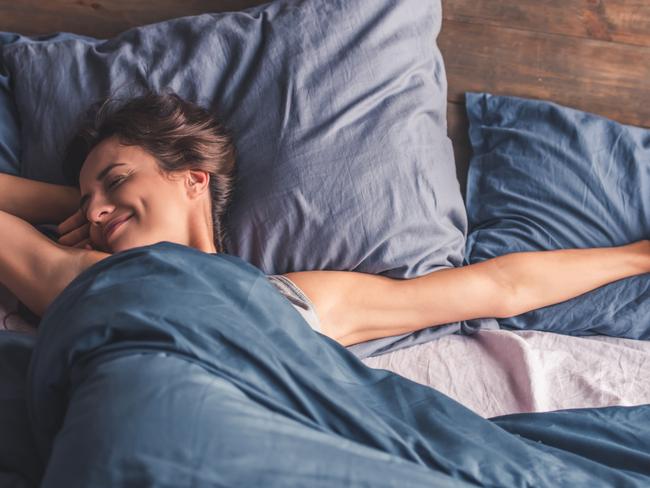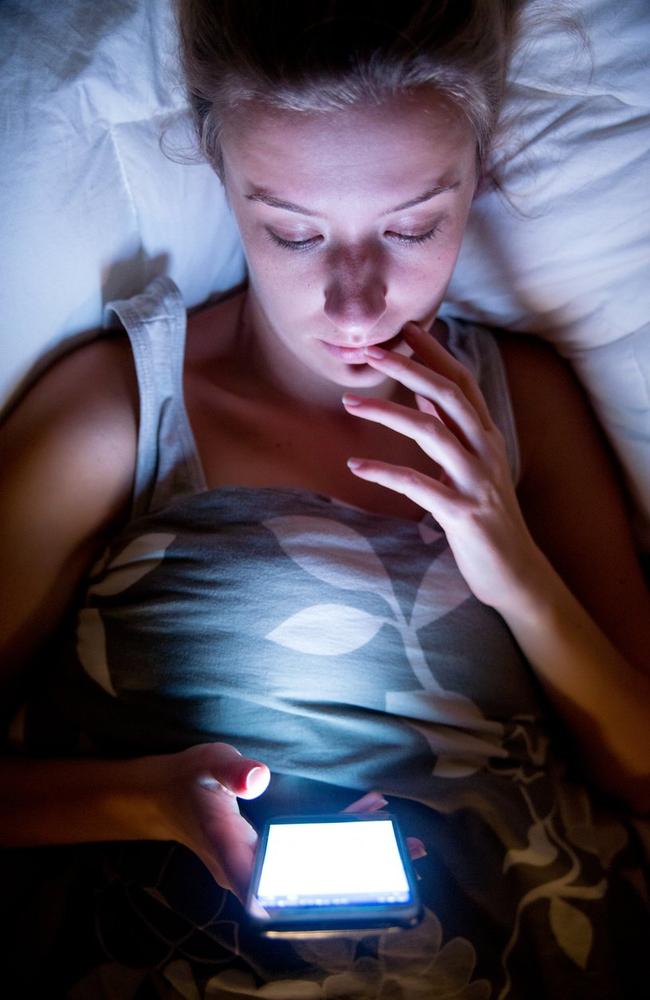Monash University study links high blood pressure and poor sleep to brain injury and accelerated brain ageing
People with high blood pressure are at an increased risk of getting dementia — especially if they don’t get a certain amount of sleep each night, it’s now been revealed.
Victoria
Don't miss out on the headlines from Victoria. Followed categories will be added to My News.
People with high blood pressure who also don’t get enough sleep are more likely to suffer brain injuries and accelerated brain ageing.
A new study by Monash University has revealed for the first time the two serious health conditions may be connected and could increase the risk to brain health.
In good news, if treated, the risk may be reduced.
Senior author Matthew Pase from the Monash University School of Psychological Sciences and Turner Institute for Brain and Mental Health, said a lack of sleep was a known risk of cognitive impairment and dementia.

What this study, published in the Journal of the American Heart Association, found was how poor sleep together with high blood pressure reduced cognitive performance and increased the threat of brain injury that, at the extreme, could lead to dementia.
Professor Pase said the combination of short sleep – less than seven hours a night – and hypertension (high blood pressure) on brain health was unclear before this study.
“We set out to see if there was this interaction between the two and indeed we did find it,” he said.
The good news is that it can be treated with regular bedtimes, seven to nine hours of sleep every night and high blood pressure treated by a GP.
“In a previous study we showed that individuals with high blood pressure that was untreated had a high risk of dementia and those who received treatment for their high blood pressure had about a 12 per cent reduction in their risk of getting dementia,” Prof Pase said.
This study used data from 682 middle-aged Americans involved in the Framingham Heart Study. This is one of the longest ongoing studies designed to identify common factors or characteristics that contribute to cardiovascular disease.

“We looked at people’s thinking and memory and markers of brain health when we did imaging scans of their brain,” Prof Pase said.
It found in people with high blood pressure, shorter sleep duration was associated with poorer executive functioning and markers of brain injury and accelerated brain ageing on MRI which was not seen in people with normal blood pressure.
Around one in three people in the study reported having less than six hours of sleep a night, 16 per cent had sleep apnoea and almost a quarter were using sleeping pills regularly.
“These findings have significance, given that over one-third of Australians experience sleep problems,” Prof Pase said.
“Importantly, sleep problems and hypertension are treatable. Addressing these factors may offer new opportunities for intervention to improve brain health.”

He is now leading a new study with more than 200 Australian patients.
The Australian Brain and Cognitive Health cohort study will monitor blood pressure over 24 hours as Prof Pase said typically blood pressure should dip at night to give the brain and body a rest.
“So if you’re having disrupted sleep, maybe your blood pressure isn’t dipping very well at night,” he said. “That may be the connection. The first step to getting a good night’s sleep is to recognise its importance.”
The study’s first author Stephanie Yiallourou said screening people with high blood pressure for insufficient sleep could allow tailored therapies to improve brain ageing and reduce brain injury.
“The next step in this research is to explore whether the double hit of short sleep and hypertension is associated with dementia risk in the long-term,” Dr Yiallourou said.
SLEEP WELL
•Recognise the importance of a good night’s sleep
•Get your blood pressure checked by your GP
•Try to get seven to eight hours of sleep every night
•Be consistent: Go to bed and get up around the same time every day
•Keep the bedroom dark, comfortable and reserved for sleep, not work
•Wind down before bed and avoid too much bright light and screen time
•Exercise during the day and avoid smoking and excessive alcohol




